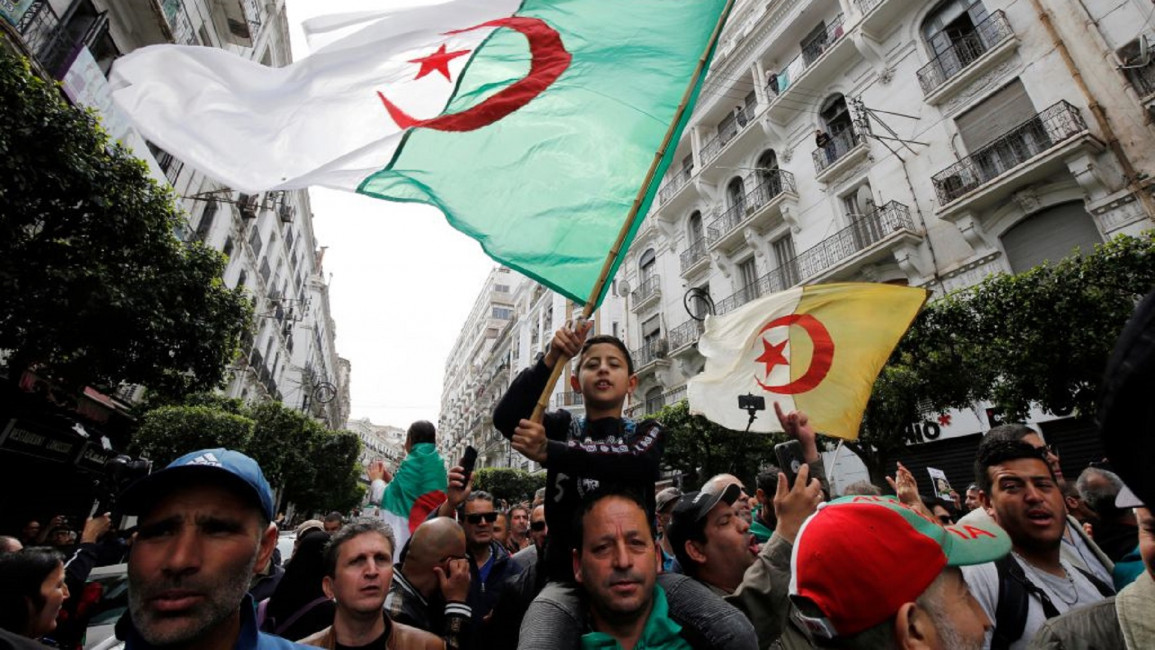
The regime should know that Algerians will never forget their revolutionary martyrs
The celebrations will centre Algerian president Abdelmadjid Tebboune's constitutional reforms, which he claims are a response to the protests which erupted in February 2019 and forced the former president, Abdelaziz Bouteflika to resign. A popular referendum on the new constitution is also due to take place on Sunday, as Algerians remember the beginning of their anti-colonial struggle.
It is difficult to understand how it is possible for the Algerian regime to claim that it is "listening" to its people, given that protesters have repeatedly make clear that their tweaks, reforms, revisions - or whatever else Tebboune wishes to call them - are far from the key demand made by the Hirak. Instead, the movement has repeatedly called for a total uprooting of the military state, the democratisation of the political system, and accountability for those who have bled the people dry for decades. The time for reform has passed. We have now entered the season of revolution, and there is no going back.
The fact that a mass boycott undermined the election of Tebboune as president in the first place, highlights the people's feelings towards his political programme - including the constitutional changes. Furthermore, the regime has taken advantage of the national lockdown in response to the Covid-19 pandemic, to arrest and imprison Hirak protesters, leaders and journalists.
|
The detention of pro-Hirak Casbah Tribune reporter Khaled Drareni, has shone a light on the double standards of a government that claims to be led by a president who listens to the people, while simultaneously locking up the very people fighting for just that. The repression has only reinforced to both national and international audiences that the Hirak are right to refuse any engagement with a corrupt and unjust political system.
They must – in the words of the slogan that has echoed across the country for over a year – all go.
The faces of the heads of state may change, the rules of the game may be altered slightly, but the nature of the institutions and structures will encourage and sustain the very practices that have kept the people of Algeria poor, abused, and censored.
The entire process that has led to the proposed reforms by Tebboune has left little cause for hope. If the president was really serious about winning hearts and minds, why would he allow a political project of this nature to take place during a time of national isolation due to the pandemic?
Surely, now more than ever, given the delegitimising humiliation of his largely boycotted election, he should seek mass civil involvement and transparency? How can he talk of transparency, while journalists - the very people who should be free to investigate, probe, and question - are being sentenced to years in prison?
The fact that the regime waited for the halting of demonstrations in response to the Covid-19 outbreak to rush through its constitutional changes, says it all. Tebboune simply continued in the tradition of his predecessors, and the Algerian people expect nothing else. Far from allowing the guiding light to be the people, their needs and freedoms, presidents past have used reform to push through the minimum changes necessary to appear democratic, while continuing to rule with an iron fist.
 |
The Algerian people do not forget their martyrs, their history, and their sacrifices |  |
As if Boutaflika's reign wasn't already synonymous with high levels of corruption, it was recently reported that his presidency had effectively begun with a lie. The former president allegedly entered a fake marriage in order to meet the constitutional requirements for the candidacy. Perhaps this is unsurprising to many, given his two decade-long rule was an endless series of deceit and exploitation of the wealth of the country. He, too, used "reforms" to his advantage: while allowing surface reforms and sham elections to be held, in 2008 he lifted the limit on the length of his presidential term.
It is difficult to believe that the proposals in Sunday's referendum are a genuine attempt to address the deep issues that bind Algerian society. Instead, the vote will likely serve as a PR stunt for the international community while poverty, unemployment, collapsing welfare provision, and the redistribution of the country's wealth to generals, businessmen and politicians, continue apace.
Read more: Democracy or dependence? The future of Algeria in a rentier economy
So as the regime prepares its charade for 1 November, let's also mark another anniversary that far better reflects its true nature: that of the October riots of 1988. People rose up then, against the FLN's one-party rule and its failing economic system. They were met with deadly violence. The years that followed saw a military coup in response to the first free election since the country's independence, and a decade long civil war.
They can keep their official ceremonies, their sham referendums, and their parades. The Algerian people do not forget their martyrs, their history, and their sacrifices. Their memory is not erased or dazzled by the pomp and the false promises. They know that the victories to come will both be theirs, as well as the vindication of those who fought before. Tebboune's will be one more name that the next wave of revolt will erase.
Malia Bouattia is an activist, a former president of the National Union of Students, and co-founder of the Students not Suspects/Educators not Informants Network.
Follow her on Twitter: @MaliaBouattia
Have questions or comments? Email us at: editorial-english@alaraby.co.uk
Opinions expressed in this article remain those of the author and do not necessarily represent those of The New Arab, its editorial board or staff.




